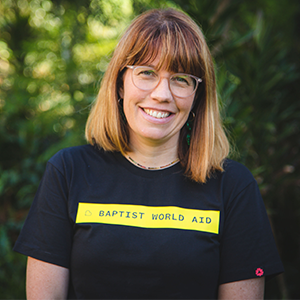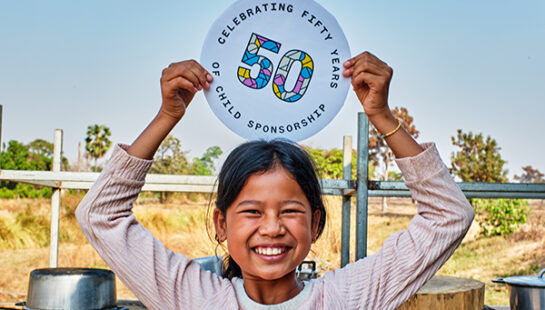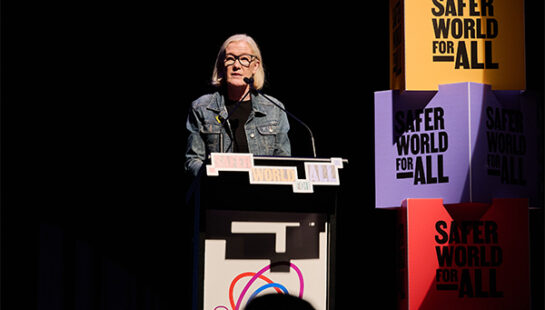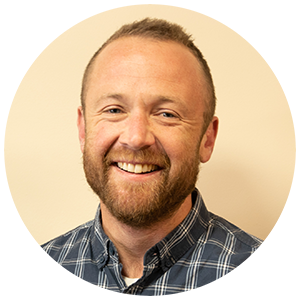Thirty years ago, world leaders made a commitment to the world’s children, adopting the United Nations Convention on the Rights of the Child. It includes rights like:
Children have the right to an education (Article 28)
Children have the right to relax, play and to join in a wide range of leisure activities (Article 31) Children should be protected from any activities that could harm their development (Article 36)
These rights seem obvious to us in Australia, but not every child in the world is guaranteed them.
Joan’s Story
When Joan* finished primary school in Uganda, it ended her formal education. She wanted to go to high school, but her family couldn’t afford it. Without safe places to spend time, girls like Joan, who are already at risk because of poverty, can become increasingly vulnerable to an early marriage and pregnancy.
Primary schooling is free in Uganda, but poverty keeps many children from progressing further. Sometimes this results in young people having nowhere in particular to be, and nothing purposeful to do.
At 16 years old, Joan and her friends reflect a global concern for young people in vulnerable communities: without the knowledge of their right to an education, leisure, social support and health care, many will be even more vulnerable to child marriage, child labour, illiteracy and exploitation.
What Are Our Christian Partners Doing
That’s why our Christian Partners in countries such as Uganda, Bangladesh and Cambodia invest time, care and resources into workshops and clubs for children and young people like Joan. They monitor their wellbeing and provide programming that allows them to play, teaches them to advocate for their rights, and develops their leadership skills. Our Partners also invest in educating parents and community members and, where possible, work with governments to promote and uphold the rights of children.
‘At the heart of our Child and Youth programs is a whole of life focus,’ said Nerissa Prangnell, International Programs Coordinator at Baptist World Aid Australia. ‘When children have opportunities to grow and they know their rights, they can overcome the challenges they face in otherwise vulnerable communities.’
When children have more opportunities to grow and they know their rights, they can overcome the challenges they face.
Christian Partners in Cambodia identified the needs of children and young people in their communities, where options for employment locally were low. By providing training in saving and income generation, our Partners help prevent young people from engaging in exploitative labour across the Thai border.
Children Fighting For The Rights Of Other Children
In Bangladesh 15-year-old Pathan* and his friends, with the help of our Partner staff, repaired a broken road in their village. Together they worked to protect young girls from sexual harassment—mapping out safe routes for girls to walk and making sure no one walks alone. There also used to be violence in the local school, with teachers employing corporal punishment. With the help of our Partners, the children spoke up about this and the use of the cane is now prohibited.
Pathan’s leadership in bringing justice to his community is a common attribute of Child and Youth Clubs.
Likewise, when Joan joined her club in Uganda, her peers elected her to become a leader. She was able to restart her education—albeit in an unconventional classroom. She learned record keeping and business management skills. She took part in advocacy training, learning about child rights and how to support other young people in her community.
Children Living Meaningful Lives
Now Joan attends weekly meetings where their group creates businesses, shares ideas, saves together, and supports one another’s progress. Joan took part in a fashion design and skills training course, and then began renting a sewing machine and earning a good income.
Now she makes clothes and is supporting herself, helping her siblings and saving. Her goal is to buy her own machine and to train other young people. She wants to help others find purpose.
‘I had no idea of life skills which would help me live a meaningful life,’ Joan said. ‘Now I do.’
*Name changed for privacy reasons



 Heather Keith,
Heather Keith,

 Mike Bartlett
Mike Bartlett